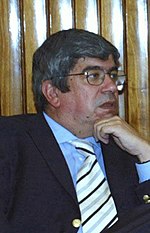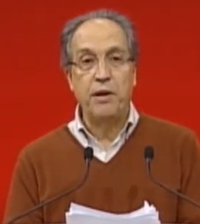Our website is made possible by displaying online advertisements to our visitors.
Please consider supporting us by disabling your ad blocker.
2002 Portuguese legislative election
| ||||||||||||||||||||||||||||||||||||||||||||||||||||||||||||||||||||||||||||||||||||||||||||
230 seats to the Portuguese Assembly 116 seats needed for a majority | ||||||||||||||||||||||||||||||||||||||||||||||||||||||||||||||||||||||||||||||||||||||||||||
|---|---|---|---|---|---|---|---|---|---|---|---|---|---|---|---|---|---|---|---|---|---|---|---|---|---|---|---|---|---|---|---|---|---|---|---|---|---|---|---|---|---|---|---|---|---|---|---|---|---|---|---|---|---|---|---|---|---|---|---|---|---|---|---|---|---|---|---|---|---|---|---|---|---|---|---|---|---|---|---|---|---|---|---|---|---|---|---|---|---|---|---|---|
| Registered | 8,902,713 | |||||||||||||||||||||||||||||||||||||||||||||||||||||||||||||||||||||||||||||||||||||||||||
| Turnout | 5,473,655 (61.5%) | |||||||||||||||||||||||||||||||||||||||||||||||||||||||||||||||||||||||||||||||||||||||||||
| ||||||||||||||||||||||||||||||||||||||||||||||||||||||||||||||||||||||||||||||||||||||||||||
| ||||||||||||||||||||||||||||||||||||||||||||||||||||||||||||||||||||||||||||||||||||||||||||
The 2002 Portuguese legislative election took place on 17 March. The election renewed all 230 members of the Assembly of the Republic.
These elections were called after the resignation of the then incumbent Prime Minister, António Guterres after the defeat of the Socialist Party in the 2001 local elections. That fact, plus the problematic state of the country's finances were the main arguments of the right-wing parties, which led them to be the favourites to win the election.
With just over 40 percent of the votes cast, the Social Democrats regained the status as the largest political force in Portugal, although the Socialists won almost 38 percent of the vote. This was the closest legislative election in Portuguese democracy until 2024. This short distance also appears on the electoral map, with each party winning eleven of the 22 districts, while the PS won the most populous, Lisbon and Porto. As a result, the Social Democrats fail to win the absolute majority they had between 1987 and 1995.
As no Party got an absolute majority, the Social Democrats formed a coalition with the right-wing People's Party. The left-wing Democratic Unity Coalition achieved the lowest result ever, finishing in the third place in its traditional strongholds, Évora and Setúbal. The Left Bloc gained one MP. Turnout was slightly higher than it was in 1999 but remained quite low, marking a growing separation between the politics and the Portuguese people, mainly due to the image of the politicians as corrupts and the idea that all the parties are the same.
Voter turnout was slightly higher than in 1999, as 61.5 percent of the electorate cast a ballot.
Previous Page Next Page
Eleccions legislatives portugueses de 2002 Catalan Parlamentsvalget i Portugal 2002 Danish Parlamentswahl in Portugal 2002 German Elecciones parlamentarias de Portugal de 2002 Spanish Élections législatives portugaises de 2002 French Elezioni legislative in Portogallo del 2002 Italian 2002年ポルトガル議会選挙 Japanese Eleições legislativas portuguesas de 2002 Portuguese









